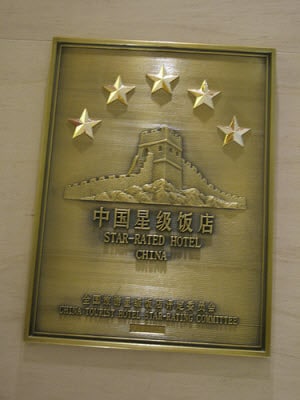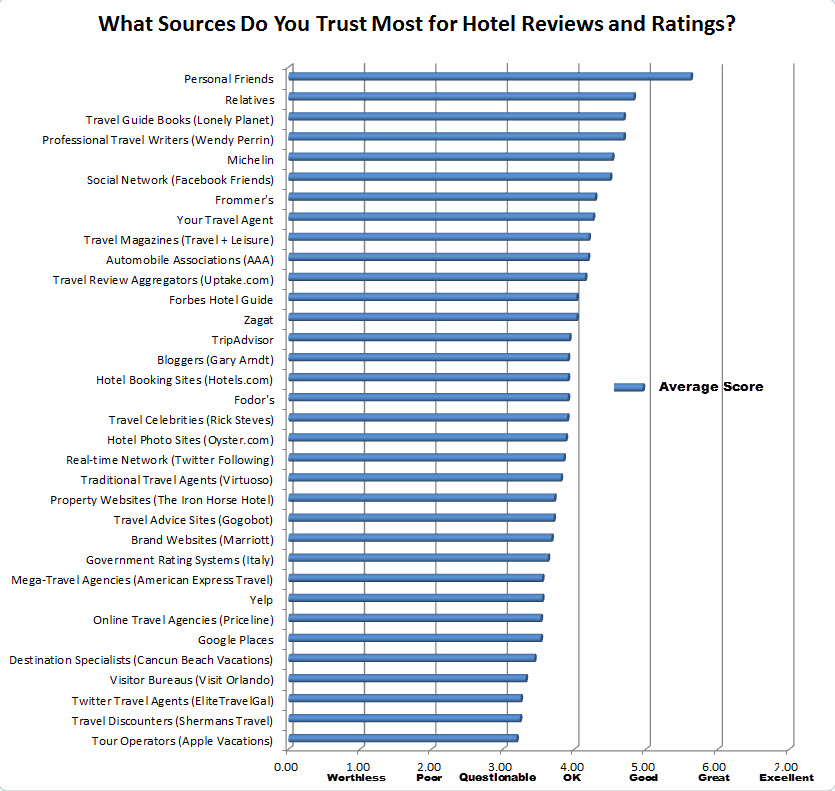Hotel reviews and ratings are a hot topic of discussion and it’s getting hotter. Recent PhoCusWright research finds 43% of travelers are influenced by social media and that two-thirds of hotel reviews are submitted on Online Travel Agency sites, with the remaining 34% posted on travel review sites. However, various groups are also accusing TripAdvisor of not doing enough to identify and eradicate phony hotel reviews.

Hotel ratings and reviews are an invaluable resource for travelers, but with no industry standards and a black-hat element of the industry transitioning from Online Reputation Management (ORM) to Fake Review Optimization (FRO) can they be trusted?
Photo Credit: jcberk
All of the action isn’t necessarily taking place online. Earlier this year, Forrester Research found 29% of leisure travelers would work with a traditional agent, if they could find a good one. That statistic is sharply up from 23% in 2008.
To make matters worse, there are no global standards for hotel ratings, subjecting the prospective hotel guest to a litany of rating scales, often graded by vague, inconsistent, and frequently contradictory measures.
Regardless, the stakes have now been raised dramatically. User generated reviews now factor into search engine results, so enterprising Search Engine Optimization specialists, perhaps recently thwarted by Google’s Panda updates to its search algorithm, have now turned their sites on exploiting the system by doctoring user reviews to enhance search engine rankings.
Some intrepid pioneers brazenly promote their ability to bury negative reviews with positive ones originating from 10,000+ IP addresses and thousands of email addresses. Not surprisingly, there is no mention of these reviews originating from actual guests, a blatant violation of US Federal Trade Commission official guidelines governing endorsements and testimonials. Similar rules prohibit such black-hat practices throughout Europe and elsewhere.
Google itself is also making waves in the review space as it solidifies its local strategy surrounding its Places pages – already a hotbed of activity with hotel price ads pitting hotels against online travel agencies, this time using context sensitive inventory and pricing as the weapons of choice. Simultaneously, with Google’s launch of Google Plus, the decision to require individuals to identify themselves only by using real names adds an additional method to structurally inhibit illegitimate reviews from anonymous sources.
Perhaps Google’s most bold move is its purchase of Zagat, and its highly curated, yet crowd-sourced review platform. With Google internalizing a respected review platform, undoubtedly with an idea of expanding it dramatically, it gets much closer to the deep content that drives customer engagement, validation and relevance. This is particularly important when leveraging semantic search technologies capable of introducing much needed context into travel search processes.
Who Do You Trust?
So, where do travelers look for recommendations regarding their lodging choices? The burning question is more importantly, whose advice do they truly trust and act on when making a hotel reservation?
Considering the fact that I interact with a large number of sophisticated travelers, I prepared a brief 1-page survey to find out whose hotel reviews and ratings the travel cognoscenti trust. The resulting 34 potential sources are roughly divided into three categories – types of individuals, prominent hotel review sites and general categories of sites hosting reviews.
The survey was designed with a single question: “What Sources Do You Trust Most for Hotel Reviews and Ratings?” offering 34 options as responses to rate on a 1-7 scale, with 1 being Worthless and 7 being Excellent.
Here are the results:
Thanks to all that took the time to complete the survey.










